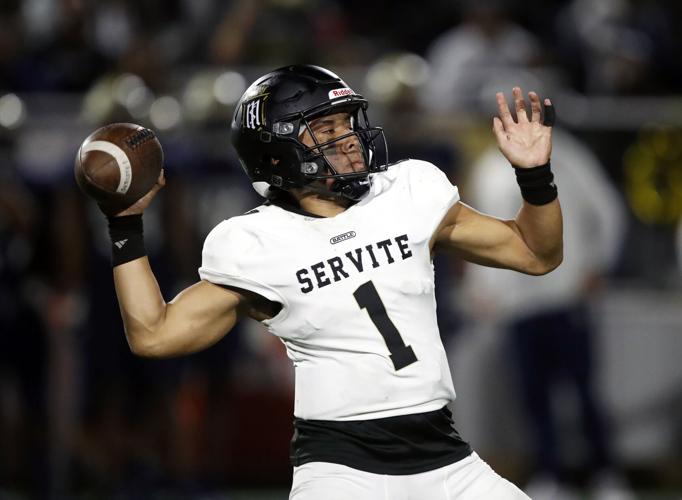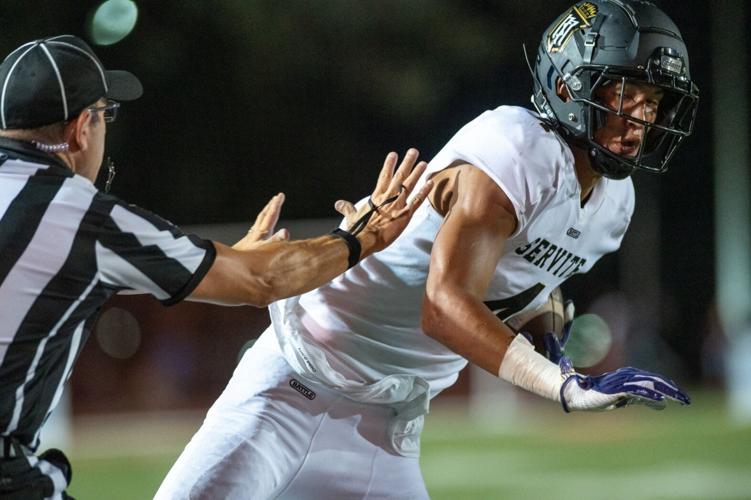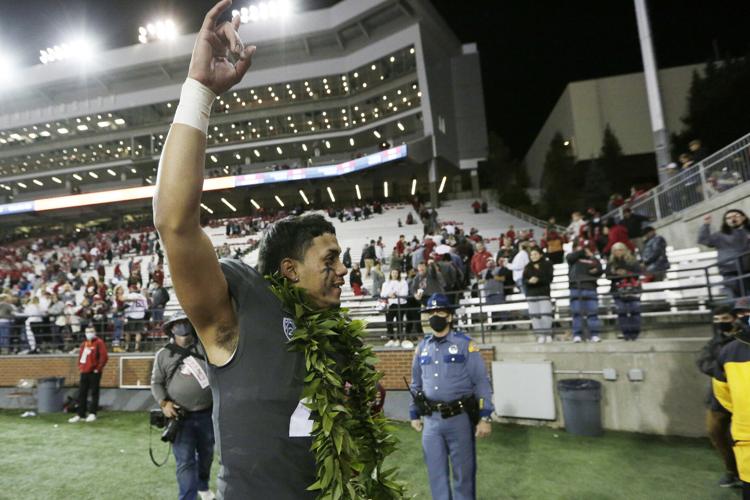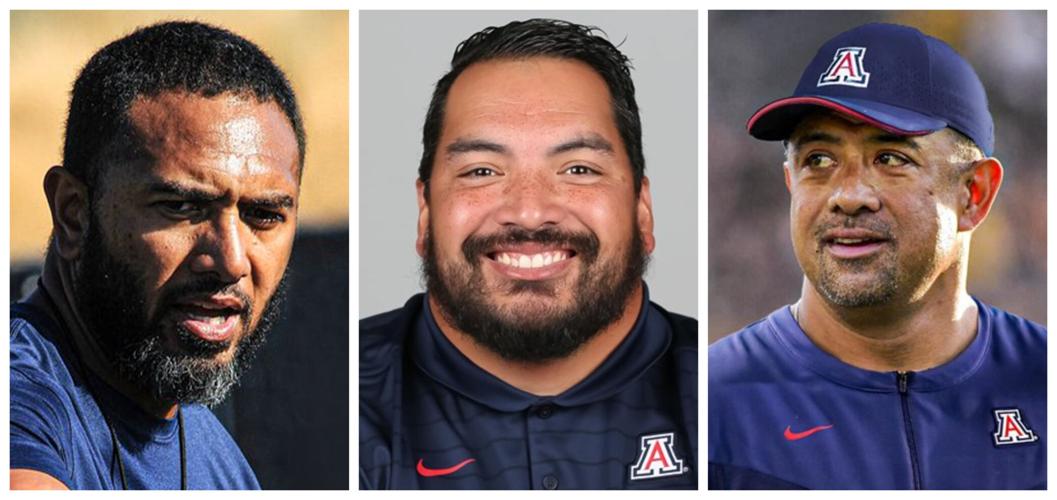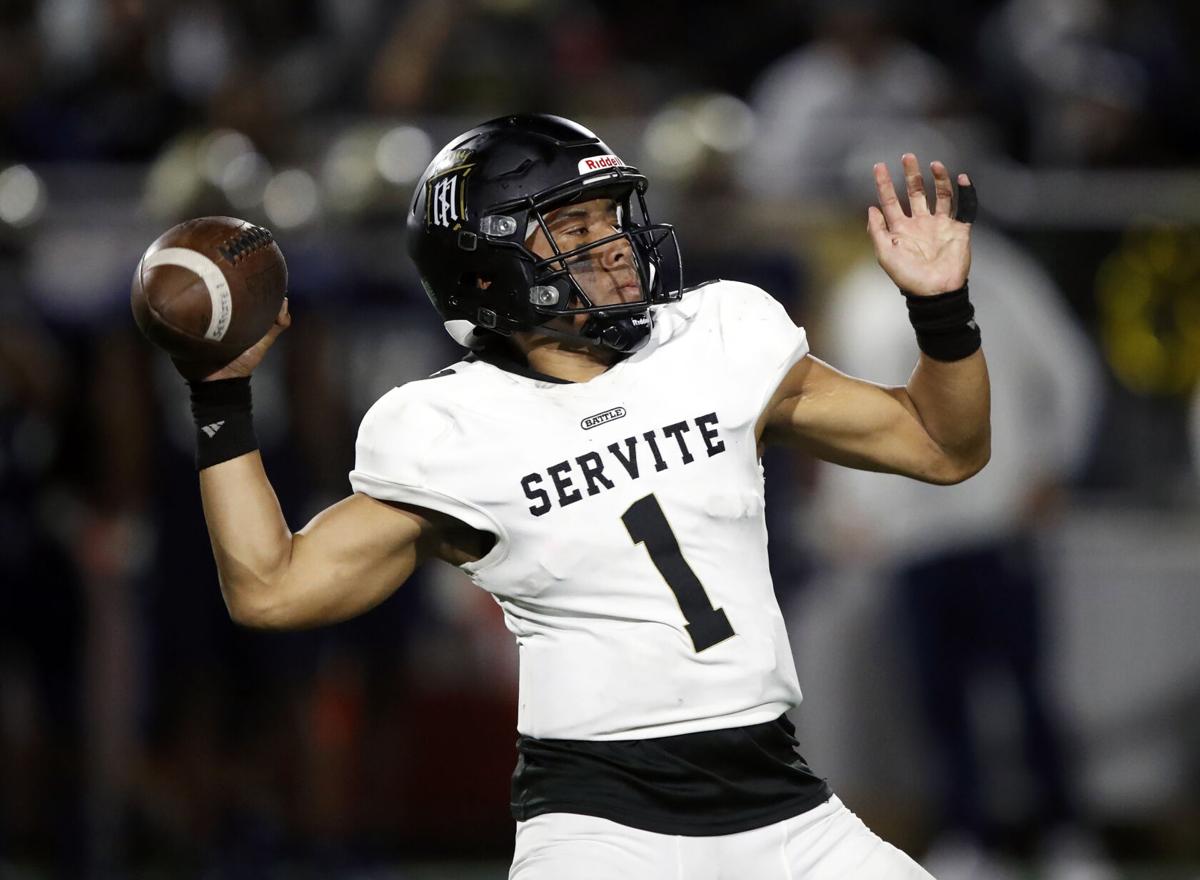For years — bordering on decades — Arizona football fans have pined for the program to reconnect the so-called Polynesian pipeline.
Players from the Pacific islands helped turn the Wildcats into contenders under Dick Tomey, who came to Tucson from Hawaii. Other programs, particularly on the West Coast, followed Tomey’s lead and stocked their rosters with recruits of Samoan and Tongan descent, eroding an advantage Arizona once had.
As the years passed, recruiting Polynesians became less of a priority for Tomey’s successors. Pac-12 rivals such as Utah and Washington reaped the benefits.
That appears to be changing.
Including transfers, Arizona has seven players with Polynesian roots in its 2022 signing class. The Wildcats have the most representatives — six — of any program in the country in the Polynesian Bowl, which is set to kick off Saturday in Honolulu.
How big a deal is that? Well, consider this: Arizona had only three commits, total, in the first five Polynesian Bowls. (Last year’s game was not played because of the pandemic.)
“I’m so excited about what’s about to happen,” said George Malauulu, the former UA quarterback and current president of the AIGA Foundation, a non-profit organization that assists Polynesian student-athletes.

New UA quarterback Jayden de Laura played at Saint Louis High School in Honolulu before signing with Washington State, where he was named the Pac-12 Offensive Freshman of the Year.
Arizona’s ’22 class — ranked second in the Pac-12 by 247Sports.com and Rivals.com — landed its first Polynesian prospect in April, when quarterback Noah Fifita of Servite High School in Anaheim, California, committed. Next came offensive lineman Jonah Savaiinaea of Honolulu’s Saint Louis High School. In the fall, two of Fifita’s prep teammates, Jacob Manu and Tetairoa McMillan, joined the class. McMillan on Friday was named the 2021 Polynesian High School Player of the Year.
Arizona flipped defensive lineman Ta’ita’i Uiagalelei of Mater Dei High School in Sana Ana, California, in mid-December. The transfer portal brought UCLA defensive tackle Tiaoalii Savea and Washington State quarterback Jayden de Laura to Tucson. Both are Polynesian Bowl alums.
Not every participant in Saturday’s game is of Polynesian decent. Many non-Polynesians are invited to play. Arizona’s sixth representative is tight end Keyan Burnett, who was teammates with Fifita, Manu and McMillan at Servite.
Burnett has known them since they played together with the Orange County Buckeyes in middle school. They developed a bond that goes beyond friendship.
“Family is huge in their culture,” Burnett told 247Sports.com after a Polynesian Bowl practice this week. “I think growing up with the Buckeyes rubbed off a little.”

UA assistant coaches (from left) Jason Kaufusi, Jordan Paopao and Johnny Nansen.
Fully staffed
Jedd Fisch and his staff have made re-establishing ties to the Polynesian community a “clear and dedicated focus,” said Brandon Huffman, the national recruiting editor for 247Sports.com.
It isn’t something Fisch has discussed at length, at least not publicly. This is a case where actions have spoken louder than words for the pitchman of Arizona football.
Fisch’s original staff included one Polynesian coach in an on-field role: tight ends coach Jordan Paopao. Since then, Fisch has hired two more: Johnny Nansen (defensive coordinator) and Jason Kaufusi (edge rushers).
Whether intentional or coincidental, those moves have made an impact in the Polynesian community, where, as Burnett noted, family is everything. Brandon Manumaleuna, who played tight end under Tomey before a 10-year career in the NFL, said it’s important for parents to “know there’s a Polynesian coach on the staff that can look after their son and instill some of the teachings our culture has.”
“It’s moreso for the parents than the kids,” said Manumaleuna, who’s now the coach at Leuzinger High School in Lawndale, California. “’My son will be taken care of.’ It puts parents at ease.”
Shortly after he was hired, Paopao was asked about recruiting and connecting with Polynesian players. He smiled and said: “You didn’t know that all Polynesian guys are related?”
He was joking, of course. But he was also expressing an idea. With three Polynesian coaches on the staff from different parts of the U.S. — Paopao is from Oceanside, California; Nansen was born in American Samoa and went to high school in Long Beach, California; Kaufusi is from Salt Lake City — Arizona has widespread connections. The Wildcats have the most full-time, on-field assistants of Polynesian descent in the Pac-12, according to a survey of online staff directories.
“The fact they have three, that goes to show you they’ve made a commitment to bringing in our kids,” Malauulu said. “It’s almost like a call home.”
One week after Nansen was hired, Arizona offered Uiagalelei, who was committed to Washington State. He signed with the Wildcats a week after that.
Nansen was Savea’s primary recruiter to UCLA. It’s no coincidence that Savea transferred to Arizona after entering the portal.

Servite High School receiver Tetairoa McMillan is “the biggest recruit they’ve had in program history,” according to former UA tight end Brandon Manumaleuna.
Sustainable success?
Arizona has brought in Polynesian players. It has hired Polynesian coaches. The pipeline has been restored.
The question now is whether it’s sustainable.
It’s one thing to recruit and sign talented players. It’s another to develop them. Arizona has not had an exemplary record in that regard in recent years.
Huffman cited the example of Michael Eletise, a four-star offensive lineman from Hawaii who was the top-ranked player in the Wildcats’ 2016 class. Eletise appeared in 23 games for Arizona but never became a full-time starter.
Eletise transferred to Hawaii and played 19 games for the Rainbow Warriors. He retired from football, citing medical reasons, in June of last year.
“It’s not just about having success getting players,” Huffman said. “It’s about those players having success while they’re there.”
Of the three Aizona players who took part in previous Polynesian Bowls, only one, offensive lineman Donovan Laie, developed into a starter.
The new batch of players, most of whom already have enrolled, looks promising on paper.
De Laura — who’s from the same high school as Savaiinaea — was named Pac-12 Offensive Freshman of the Year as a second-year starter at Washington State. Savea was the top-rated recruit in UCLA’s 2020 class and tallied seven tackles in his final three appearances of ’21.
UA staffers already are impressed with Savaiinaea, who could have a role as a true freshman, a rarity for offensive linemen. Fifita was named Offensive MVP of the highly competitive Trinity League and is considered Arizona’s quarterback of the future.
Then there’s McMillan, whom Manumaleuna dubbed “the best player in California” in 2021. He’s not alone in that assessment. McMillan likely will be a consensus five-star prospect when this recruiting cycle officially ends.
“It’s the biggest recruit they’ve had in program history,” Malauulu said. “The fact that he’s a Polynesian, now everybody’s going to look this way. He’s going to lead everybody to Tucson.”
Whether that happens likely will depend on McMillan’s performance at Arizona. Will he live up to his potential under Fisch and his staff?
Fifita was something of a pied piper for the 2022 class. McMillan could become one for future classes.
“You want to be the school those kids have flourished at,” Huffman said. “You want to be the attractive option.”


